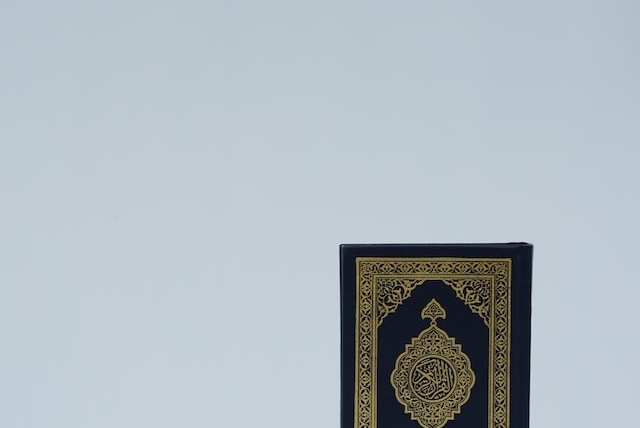Quran recitation and Tajweed are two terms that are often used interchangeably, but there is an important distinction between them. Quran recitation refers to the act of reciting the Quran, while Tajweed refers to the rules and guidelines for proper pronunciation, rhythm, and intonation of the Quran. Understanding this distinction is crucial for improving your recitation of the Quran.
Quran Recitation
Quran recitation refers to the act of reading and reciting the Quran. This involves reading the text of the Quran from a written or printed copy, or from memory, and reciting it in a way that is consistent with the pronunciation, rhythm, and intonation of the original Arabic text. Quran recitation is an important aspect of the Islamic faith and is considered a form of worship.
What are the benefits of Reciting the Quran?
The Holy Qur’an is considered one of the greatest blessings granted by Allah Almighty to His servants, and it is the best remembrance. There are many benefits to Qi’rah Al Quran, including the following:
1. Qi’rah Al Quran increases the Muslim’s confidence and belief that Allah Almighty is aware of it in every place and time.
A Muslim learns values and high morals that positively affect his life and his dealings with everyone when Qi’rah Al Quran, and he also realizes what are the correct ways to deal with his family members.
2. Qi’rah Al Quran Increasing the Muslim’s sense of comfort and reassurance, as the Holy Qur’an is the best remembrance, as Allah Almighty said:
الَّذِينَ آَمَنُوا وَتَطْمَئِنُّ قُلُوبُهُمْ بِذِكْرِ اللَّهِ أَلَا بِذِكْرِ اللَّهِ تَطْمَئِنُّ الْقُلُوبُ.
3. Qi’rah Al Quran is a protection for the Muslim from hardship and anxiety, and this is confirmed to us by the words of God Almighty:
وَمَنْ أَعْرَضَ عَنْ ذِكْرِي فَإِنَّ لَهُ مَعِيشَةً ضَنْكًا وَنَحْشُرُهُ يَوْمَ الْقِيَامَةِ أَعْمَى.
4. Qi’rah Al Quran rids a person of Satan’s whispers, makes him more confident in Allah, Glory be to Him, and turns between him and despair and fear, which increases his psychological stability.
Tajweed
Tajweed, on the other hand, refers to the rules and guidelines for proper pronunciation, rhythm, and intonation of the Quran. Tajweed is derived from an Arabic word that means “correctness” or “improvement.” The rules of Tajweed are designed to ensure that the Quran is recited in a way that is consistent with the original Arabic text and that accurately reflects the meaning and beauty of the text.
Importance of Tajweed
Tajweed is considered to be of the utmost importance in the Islamic faith, as it is considered to be a way of preserving the original text of the Quran and ensuring that it is recited correctly. Improving your Tajweed can help you better understand and connect with the Quran, as well as increase your religious devotion.
Read also: Etiquette For Correcting Someone’s Tajweed Without Offending
The Benefit Of Tajweed Science
Preserving the tongue from error or what is called melody is the benefit when Qi’rah Al Quran from learning intonation, and melody in the Qur’an is of two types:
Clear melody: It is the error that occurs in the words and violates the intended meaning of the verse, and it is forbidden by the agreement of the scholars.
Hidden melody: It is a mistake that does not change the meaning but violates the rules of intonation, and it is disliked.
What are the differences between Tajweed and Recitation?
Here are the differences between Tajweed and recitation
The difference in terms of definition
Tajweed: in the language is improvement and mastery, but in terminology, Learn Quran with Tajweed Online Course is a science through which the correct pronunciation of the Qur’anic verses is known as it came from the Messenger of Allah – may Allah’s prayers and peace be upon him – and it is the extraction of each letter of the Holy Qur’an from its correct outlet.
The scholars have regulated the Qi’rah Al Quran With special provisions related to the letters of the Qur’an and the place of occurrence of each of these letters, and these provisions were called the provisions of tajweed, and they are provisions that protect the reader’s tongue from error and improve his voice.
Recitation: linguistically the source of the verb recites, and it means coordination, arrangement, improvement, and intonation.
The difference in terms of rulings

Tajweed relies on a set of rulings aimed at improving the voice when Qi’rah Al Quran, and preserving the tongue from error. Among the provisions of intonation are the following: Rulings on letters, Rulings on Madd, Rulings on Noon Sakinah and Tanween, Rulings on the consonant Meem, Rulings on the stressed Meem and Noun, Outlining letters, and Characteristics of letters.
While the provisions of recitation depend on the commitment to Qi’rah Al Quran as it was revealed to Muhammad, the Messenger of Allah, may Allah bless him and grant him peace, carefully and clarify the letters and movements.
And recitation has assets and rulings written or heard, which have reached us with the highest levels of narration, which is oral, where the reader takes from his teacher
Recommended reading: Master the Art of Quran Recitation with Online Tajweed Classes
What are the benefits of Tajweed and Recitation?
The benefits of recitation are:
- It is a way to keep the tongue away from the melody when Qi’rah Al Quran.
- It is a means to contemplate the meanings of the book of Allah Almighty, to reflect on His verses, and to explore His purposes.
- It is a way to straighten the crookedness of the tongue and train it to pronounce in classical Arabic, and in this, it revives it.
What are the guidelines for Tajweed and Recitation?

Tajweed is defined by the language of making something good, which is against the bad, and the presence of so and so thing; That is, he did it well, and scholars differed in defining tajweed idiomatically;
Where some of them said that it is giving the letters their rights, arranging them in their ranks, correcting the pronunciation of the letter, returning it to its origin and exit, appending it to its counterpart, and softening its pronunciation in the event of its form, without excess, cost, extravagance, or arbitrariness.
Recitation is defined as reading the Qur’an sequentially, such as parts and sixths, and as for performance, it is reading in the presence of the sheikhs, or taking from them by hearing from them.
Recommended reading: Understanding the How and Why of Learning at Home
What are the do’s and don’ts of Tajweed?
Correct pronunciation and tajweed of the Qur’an do not come with understanding the rules, but with training the tongue, and getting it used to that, and this requires anchors and a lot of practice. So straighten his tongue, and get used to the sound pronunciation. and to avoid not applying the rulings in Qi’rah Al Quran, the only way to master the science of intonation is only through the direct application while reciting the Holy Qur’an.

How can Recitation and Tajweed fit into your daily routine?
There is no doubt that the Qi’rah of Al Quran is a very important part of our day, and in order to improve reading, it is necessary to learn the rules of intonation and recitation that help us reduce errors while Qi’rah Al Quran.
How can Tajweed be used in prayer?
What is required of tajweed during prayer – whether silently or aloud – or outside it is to extract the letters from their syllables, and not to replace one letter with another, or to recite a tune in reading that changes the meaning when Qi’rah Al Quran.
Other than that, the intonation is attributed to the improvement of the reading and does not result in a breach of it referring to the meaning, such as observing the length of the length and its quantities. It is desirable, not obligatory, and the reciter’s prayer is correct.
Recommended reading: 5 Important Tips For Learning Proper Tajweed
Conclusion
Undoubtedly, reciting the Noble Qur’an is an important matter for every Muslim, and for a Muslim to be proficient in the rules of recitation, it is necessary to learn some of the rules of intonation, as recitation and intonation are both related to Qi’rah Al Quran.


